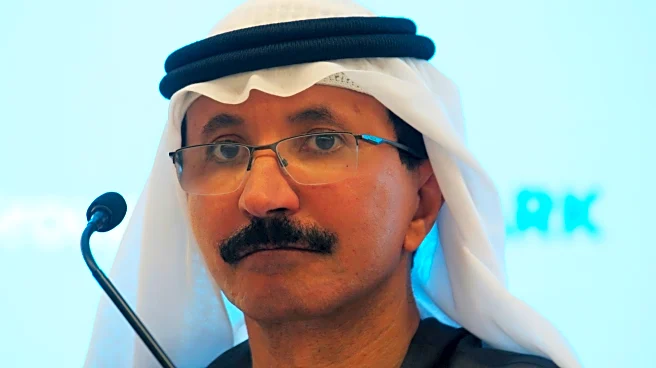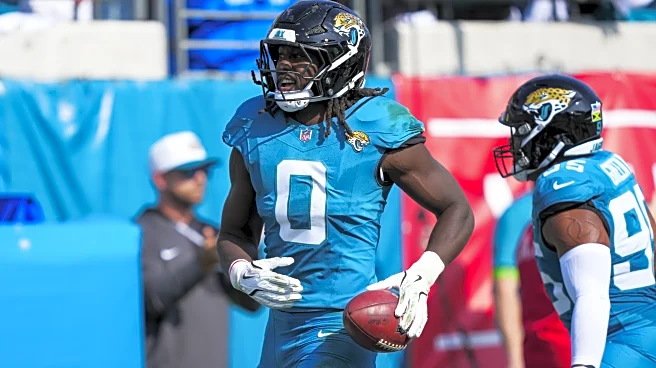What's Happening?
The family of Phoebe, an eight-year-old girl from Altrincham, Greater Manchester, is actively fundraising to cover the costs of a potentially life-saving liver transplant abroad. Phoebe has been diagnosed with a rare and aggressive form of liver cancer known as Hepatic angiosarcoma. Despite undergoing four rounds of chemotherapy and having 80% of her liver removed, her condition requires a transplant from a live donor. However, the three NHS centers capable of performing the surgery have deemed it inappropriate due to the high risks and low success rates. In response, Phoebe's family has launched a fundraising campaign, raising £68,000 in less than three weeks, with support from strangers and local community members. They are exploring options in Europe and the United States, where costs could exceed £200,000.
Why It's Important?
This situation highlights the challenges faced by families seeking specialized medical treatments that are not available or deemed unsuitable by national health services. The family's decision to seek treatment abroad underscores the limitations within the NHS for rare and high-risk procedures. The overwhelming support from the community reflects the societal willingness to assist in dire health situations, showcasing the power of collective action. The case also raises questions about healthcare accessibility and the financial burdens associated with seeking treatment outside the national system, potentially influencing public policy discussions on healthcare funding and international medical collaborations.
What's Next?
Phoebe's family is considering consultations with a specialist center in Paris and other hospitals abroad. If a center agrees to perform the surgery, the family will need to secure additional funds to cover the substantial costs. The NHS has expressed regret over the decision but remains firm in its clinical assessment. The family's determination to pursue all possible avenues for treatment may inspire further community support and potentially attract attention from international medical institutions willing to assist. The outcome of these efforts could set a precedent for similar cases, influencing future healthcare policies regarding rare diseases and international treatment options.
Beyond the Headlines
The ethical dimensions of this case involve the balance between medical risk and the potential for life-saving outcomes. It raises questions about the role of national health services in providing experimental treatments and the criteria used to make such decisions. The family's experience may contribute to broader discussions on the need for more flexible healthcare policies that accommodate rare conditions. Additionally, the cultural impact of community-driven fundraising efforts highlights the importance of social networks in addressing healthcare challenges, potentially leading to increased advocacy for policy changes.










